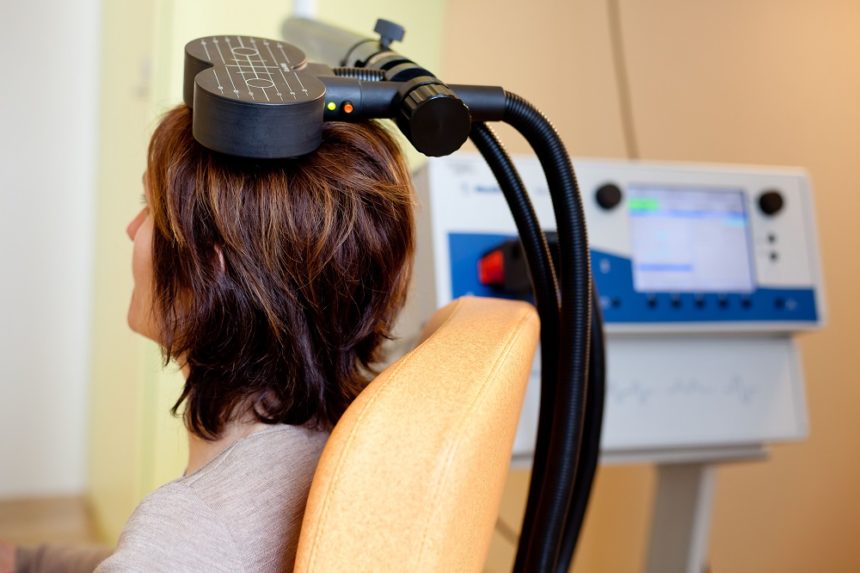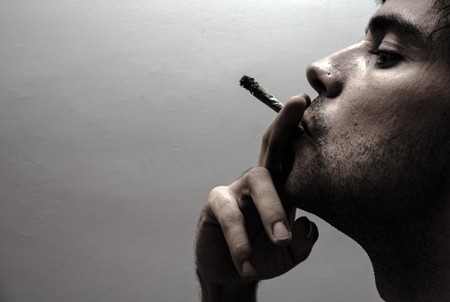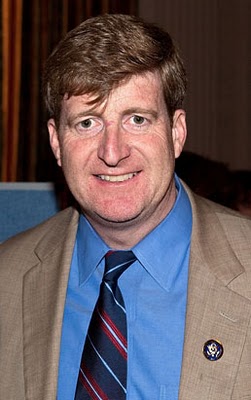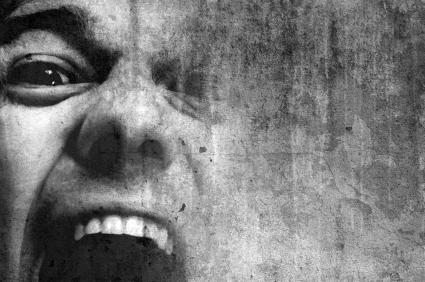Better One-Year Clinical Outcomes After Four Weeks of Theta Burst Stimulation for PTSD Than After Two Weeks

In a 2019 article in the journal Neuropsychopharmacology, Nicholas J. Petrosino and colleagues described findings from one year of follow-up with veterans suffering from post-traumatic stress disorder (PTSD) who received intermittent theta burst transcranial magnetic stimulation (iTBS) in a four-week crossover study.
In the first two weeks of the study, half of the 50 participants (who were mostly male and had an average age of 51) received iTBS while the others were given a sham procedure. Then all the participants received iTBS on an open (non-blind) basis for two more weeks.
At one month, those who had received four total weeks of iTBS had better outcomes than those who had received only two weeks of active iTBS. These results were published in the American Journal of Psychiatry in 2019 in an article by Noah S. Philip and colleagues.
The researchers went on to look at longer-term outcomes, namely time until relapse (a major event such as a re-hospitalization or suicide). After one year, those who received four weeks of iTBS went 9 to 11 months without relapsing (296.0 days ± 22.1), while those who received only two weeks of iTBS went 5 to 7 months before relapsing (182.0 days ± 31.9).
It seems that more iTBS may be better than less iTBS for PTSD in both the short and long term.
Successful Trial of N-Acetylcysteine for Veterans with PTSD and Substance Abuse
 The antioxidant N-acetylcysteine (NAC) can improve a number of habit-related conditions, such as substance use disorders, gambling, and compulsive hair-pulling. It also aids in the treatment of depression and obsessive-compulsive disorder (OCD). A 2016 study by Susie E. Back and colleagues in the Journal of Clinical Psychiatry found that NAC can also improve symptoms of post-traumatic stress disorder (PTSD) in veterans who also had substance use disorders.
The antioxidant N-acetylcysteine (NAC) can improve a number of habit-related conditions, such as substance use disorders, gambling, and compulsive hair-pulling. It also aids in the treatment of depression and obsessive-compulsive disorder (OCD). A 2016 study by Susie E. Back and colleagues in the Journal of Clinical Psychiatry found that NAC can also improve symptoms of post-traumatic stress disorder (PTSD) in veterans who also had substance use disorders.
In the pilot study of 35 veterans, participants were randomized to receive an 8-week course of NAC (2,400 mg/day) or placebo, plus cognitive-behavioral therapy targeting their substance use disorder. PTSD and substance use disorders have some overlapping neurobiological features, such as impaired prefrontal cortex regulation of basal ganglia circuitry.
At the end of the 8-week trial, those veterans who received NAC showed improvement in PTSD symptoms, substance cravings, and depression compared to those who received placebo. Substance use was similar and low among both groups. Side effects were minimal.
While these results were preliminary, they suggest that NAC could treat both PTSD and substance use disorders, which often occur together. Larger studies are expected to follow.
Editor’s Note: These preliminary data add to the evidence that NAC has remarkably wide utility in addictions (cocaine, alcohol, nicotine, and marijuana), habits (including OCD, trichotillomania/hair-pulling, nail biting, skin-picking, and cutting), depression and anxiety in bipolar disorder and negative symptoms in schizophrenia.
Study Shows FDA Drug Safety Warning on Citalopram Backfired
In August 2011, the US Food and Drug Administration issued a warning that doses of the selective serotonin reuptake inhibitor (SSRI) antidepressant citalopram (Celexa) that exceeded 40mg/day could prolong the QT interval, a measure of heart rate used to diagnose abnormal heart rhythms. A study of records from the Veterans Health Administration showed that 35,848 veterans whose dose of citalopram was reduced from an average of 64mg/day to under 40mg/day faced increased deaths, hospitalizations for any cause, and hospitalizations for depression specifically after the reductions.
The FDA warning meant to prevent heart problems had the unintended consequence of increasing hospitalizations and deaths among the veterans affected. These findings by Thomas S. Rector and colleagues were published in the American Journal of Psychiatry in 2016.
Editor’s Note: There are some similarities between this case and findings by researchers Andrew Nierenberg and Andrew Stoll, who noticed that patients taking 40mg/day of fluoxetine (Prozac) had better long-term outcomes than those taking 20mg/day, even though those taking 40mg were more ill and more likely to relapse at the start of the study.
Researchers Ellen Frank and David Kupfer found that 90% of unipolar depressed patients relapsed when their antidepressant doses were halved, even though they had been stable for 5 years before the change.
These and the findings from Rector and colleagues lead this editor to believe that reducing the dosage of effective treatments should not be done without reason—that is, in the absence of side effects, or simply to achieve the minimal effective dose. Dose reductions without cause not only may increase the risk of relapse, but may also put the patient at increased risk of developing tolerance to the medication, for example hastening the onset of ‘Prozac poop-out.’
When long-term maintenance drug therapy is going well, it may be best to be conservative and stay the course. Conversely, in the absence of a good long-term response, be as active and creative as possible to achieve mood stabilization.
Marijuana Use Worsens PTSD Symptoms in Veterans
A 2015 study by Samuel T. Wilkinson and colleagues in the Journal of Clinical Psychiatry reports that among war veterans who completed a special treatment program for post-traumatic stress disorder, those who continued or began using marijuana after treatment had more severe PTSD symptoms, were more violent, and used drugs and alcohol more often. Those who stopped using marijuana or never used it had the lowest levels of PTSD symptoms in the study.
Editor’s Note: Scientific information about marijuana is almost never reported in the media. Evidence of the adverse effects of heavy marijuana use are robust and consistent.
Some of these include:
- A doubling of the risk of psychosis compared to non-users. People with a common variation in the enzyme COMT, which metabolizes dopamine, have an even higher rate of psychosis.
- An increased risk of bipolar disorder onset.
- A worse course of bipolar disorder.
- An increased risk of schizophrenia.
- Memory deficits that remain even after marijuana use has ceased.
- Loss of motivation (exactly what someone with depression doesn’t need).
- Anatomical changes in brain structures.
- A worse course of PTSD and increased violence in those with PTSD.
Bottom line: Those who say marijuana is benign may be ill-informed. People with mood disorders, proneness to paranoia, or PTSD should stay away from marijuana.
Congressman Patrick Kennedy Says Parity in the Treatment of Mental Illnesses Is Needed
At the 10th International Conference on Bipolar Disorders in 2013, Congressman Patrick J. Kennedy addressed the combined audience of the Depression Bipolar Support Alliance (DBSA) and members of the International Society of Bipolar Disorders. He gave an inspiring speech about de-stigmatizing advocacy, and the need to have a unified message that promotes parity in the care of mental illnesses and physical illnesses. He suggested that mental disorders should be compared to heart attacks, with the mantra, “We want no more, and we should demand no less.”
Kennedy revealed his own dual diagnosis of bipolar disorder and alcohol abuse and the need to come out of the shadows, such as the basements of churches where people seeking treatment from Alcoholics Anonymous all too often remain unknown and anonymous.
Kennedy framed the issue of parity in the care of mental illnesses as a new civil rights battle. People with mental illness have been grossly discriminated against, stigmatized with derogatory epithets, and treated with indignity in the past. He stressed the need for all to advocate not so much for themselves, but for others, and to join in community to solve our current problem of isolation and alienation.
Kennedy indicated optimism for the parity mission and suggested that a good way to achieve it would be to join forces with another isolated group of young people—veterans returning from Iraq and Afghanistan. While many veterans return with brain injuries and post-traumatic stress syndrome (PTSD), seventy-two percent of veterans never go to the Veteran’s Affairs hospitals, many are ignored, and too many are locked up in prisons. Kennedy called them “prisoners of their war injuries” and “walking prisoners of war.” Twenty-two die each day by suicide.
Kennedy said we in the mental health community must stand with them and their hidden brain injuries. They are wounded, but they never receive a purple heart. He quoted a speech his uncle Robert F. Kennedy gave in Cape Town, South Africa in 1966 before anyone thought that apartheid would end. “It is from numberless diverse acts of courage and belief that human history is shaped. Each time a [person] stands up for an ideal, or acts to improve the lot of others, or strikes out against injustice, [that person] sends forth a tiny ripple of hope, and crossing each other from a million different centers of energy and daring, those ripples build a current that can sweep down the mightiest walls of oppression and resistance.”
In the mental health community we need each other and can’t afford different messages or fragmentation. Mental health advocates joining with veterans and their search for good care will be our salvation, as will our connectedness, togetherness, mutual respect, and these will yield solutions for both groups.
Prazosin Treats PTSD Nightmares
Patients with PTSD often struggle with nightmares, but a treatment normally used for high blood pressure may also be able to prevent these sometimes horrific dreams. In a study that marks the third replication of this finding, Murray Raskind, a researcher from the University of Seattle, reported that prazosin was significantly better than placebo at selectively blocking nightmares in 77 Iraq war veterans with PTSD in a 15-week trial. (Interestingly, normal dreaming is uninterrupted.)
Editor’s Note: Prazosin is a noradrenergic alpha-1 receptor antagonist. Doses of this drug must be titrated upward slowly over a period of 6 weeks to avoid orthostatic hypotension (a sudden fall in blood pressure that occurs when a person stands up). Maximum doses achieved in this study were 5mg mid-morning and 20mg at night (although 10mg at night is often effective). This treatment, although not FDA-approved, is increasingly being used in veteran populations and other patients with PTSD.
In Veterans, PTSD Is Associated With Autoimmune Illnesses
At a recent scientific meeting, Thomas Neylan and colleagues reported that post-traumatic stress disorder (PTSD) may be connected to autoimmune illnesses. In this study, 673,277 veterans of the US military who had served in Iraq and Afghanistan were screened for the development of PTSD. The illness was diagnosed in 31% of the veterans, and those individuals had a higher incidence of autoimmune-related disorders including thyroiditis, rheumatoid arthritis, inflammatory bowel disease, multiple sclerosis, and systemic lupus erythematosus. Neylan’s research group specifically examined those whose disorders developed after the onset of the PTSD, and found that the statistical relationship between their illnesses and PTSD was strong. However, the researchers also found that there was evidence of a similarly strong relationship in the other direction: veterans who were first diagnosed with some of these same autoimmune difficulties also went on to develop PTSD.
Many previous clinical and preclinical studies have linked altered immune and autoimmune mechanisms to severe stressors such as those that are involved in PTSD. This is the first study to unequivocally demonstrate the relationship in an extraordinarily large number of patients.
Editor’s Note: These findings resemble those that suggest that among the general population, childhood adversity is associated with an increased incidence of a variety of medical disorders in adulthood. Similarly, in the Bipolar Collaborative Network in which this editor (Post) is an investigator, we found that a history of childhood adversity in patients with bipolar disorder was associated with an increased incidence of a variety of medical illnesses in adulthood, including some related to immune and autoimmune function.
More research that would measure inflammatory markers in PTSD and mood disorders is needed. It would also be important to ascertain whether treatment of mood disorders and PTSD reduces the risk of autoimmune disorders.






